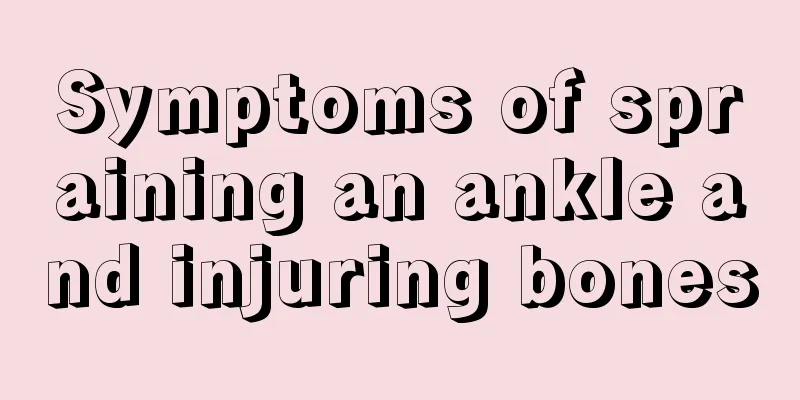Warning signs of cerebral hemorrhage, be more careful in summer!

|
Many people know that the change of seasons is a high-incidence period for cerebral hemorrhage. Many people also know that when it is very cold in winter, the rate of cerebral hemorrhage in the north will increase. However, did you know that summer is also a high-incidence period for cerebral hemorrhage? Every summer, many people lose their lives to cerebral hemorrhage. Blood pressure fluctuations, emotional tension, increased blood viscosity, and poor sleep are four factors that lead to a high incidence of cerebral hemorrhage in summer. In summer, the temperature rises and the blood vessels in the skin expand, which will inevitably reduce the blood flow to the brain and cause blood pressure fluctuations. For people with poor cardiovascular regulation and cerebral arteriosclerosis, it is easy to induce cerebral hemorrhage. On the other hand, a large amount of sweat evaporates from the human body, the water content in the blood decreases, and the blood viscosity increases, which can easily induce cerebral embolism and lead to cerebral hemorrhage. Secondly, under high temperature conditions, people are nervous and irritable, and the body's stress response is enhanced, causing cerebrovascular diseases to occur; finally, some people have poor sleep, poor rest, and eating disorders in the summer, which puts the body in a state of fatigue and stress, and the level of hormone release in the body changes, which stimulates blood vessel contraction and induces vascular diseases. Therefore, we should prevent cerebral hemorrhage in summer and pay attention to protecting our brain and heart. The first step to prevent cerebral hemorrhage is to understand the precursor signals before cerebral hemorrhage occurs! 1. Frequent and recurrent nosebleeds. 2. Sudden onset of severe headache, or a long course of illness with a tendency to gradually worsen; often accompanied by symptoms of nausea and vomiting. 3. When talking with others, you suddenly have language barriers, or unclear speech, and cannot understand what others are saying. 4. Symptoms of dizziness occur, such as a feeling that the surroundings are spinning, inability to stand steadily, or fainting. These symptoms may be transient, or they may recur or become more severe. 5. Double vision appears in the eyes and the neck becomes stiff. 6. Unsteady walking, usually numbness, fatigue, and inability to move flexibly on one side of the body, falling of handheld objects, crooked mouth, and drooling. 7. Unexplained drowsiness and sleepiness. Once you discover the above 7 warning signs of cerebral hemorrhage, you must seek medical attention in time to avoid tragedy. |
<<: There are more and more gastric cancer patients, and 10 types of people should be most vigilant!
>>: Blacklist of blood vessel "natural enemies", these five are the most lethal
Recommend
Can I have a baby if I have rectal cancer?
At present, many women wait until they are very o...
What diseases can cause bad breath?
The problem of bad breath is a very easy problem ...
Providing good care for liver cancer is the most important thing
In recent years, more and more people have been s...
Three characteristics of diseased pork
At a glance Looking at the color of the meat, fre...
What is the best way to wash fresh mushrooms?
Mushrooms are a food ingredient with very high nu...
The most commonly used method of Western medicine to treat bile duct cancer
When it comes to cancer, the first treatment that...
What causes toenails to become thick and gray?
At present, more and more people have thickening ...
What is the treatment for dry and painful eyes?
If the eyes are used for a long time without rest...
How long is the life expectancy after surgery for poorly differentiated gastric cancer
How long is the life expectancy after surgery for...
How many kilometers is the best to run every day
Running is the most common form of exercise chose...
How effective is freezing point hair removal?
Freezing point hair removal is one of the most po...
What should I do if my left eye muscle spasms?
Left eye muscle spasms may often be caused by pri...
What are the early symptoms of liver cancer? 7 early symptoms of liver cancer
1. Poor appetite, nausea and vomiting: mostly due...
The fastest way to grow hair
Hair is a part of our body and plays an important...
Conventional methods of Western medicine in treating bile duct cancer
Conventional methods of Western medicine for trea...









